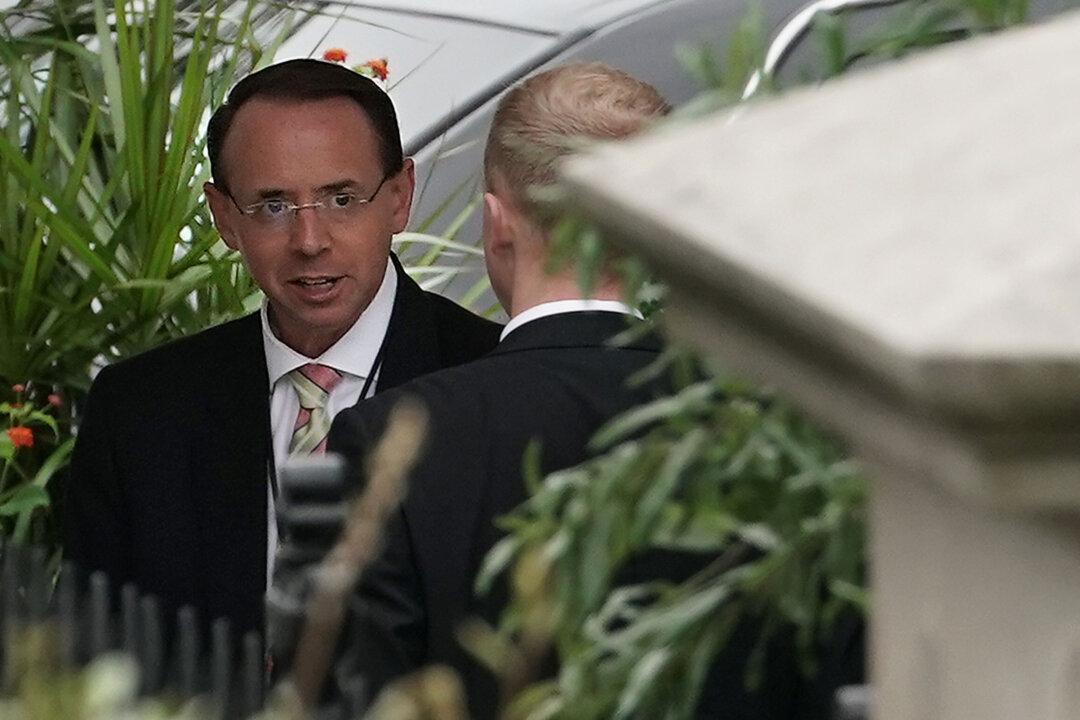Deputy Attorney General Rod Rosenstein has agreed to a closed-door talk with Congress regarding his alleged proposal to secretly record President Donald Trump.
Rosenstein spoke with Rep. Bob Goodlatte (R-Va.) on the night of Sept. 27 “and agreed on a meeting in a couple weeks,” a Justice Department spokesperson told The Epoch Times via email.





